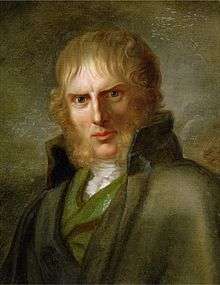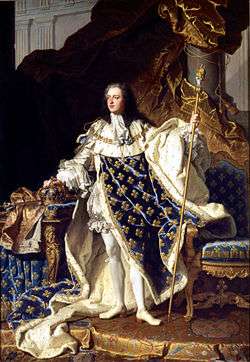1774
| Millennium: | 2nd millennium |
|---|---|
| Centuries: | 17th century · 18th century · 19th century |
| Decades: | 1740s · 1750s · 1760s · 1770s · 1780s · 1790s · 1800s |
| Years: | 1771 · 1772 · 1773 · 1774 · 1775 · 1776 · 1777 |
| 1774 by topic: | |
| Arts and Sciences | |
| Archaeology – Architecture – Art – Literature (Poetry) – Music – Science | |
| Countries | |
| Canada –Denmark – France – Great Britain – Ireland – Norway – Russia – Scotland –Sweden – | |
| Lists of leaders | |
| Colonial governors – State leaders | |
| Birth and death categories | |
| Births – Deaths | |
| Establishments and disestablishments categories | |
| Establishments – Disestablishments | |
| Works category | |
| Works | |
| Gregorian calendar | 1774 MDCCLXXIV |
| Ab urbe condita | 2527 |
| Armenian calendar | 1223 ԹՎ ՌՄԻԳ |
| Assyrian calendar | 6524 |
| Bengali calendar | 1181 |
| Berber calendar | 2724 |
| British Regnal year | 14 Geo. 3 – 15 Geo. 3 |
| Buddhist calendar | 2318 |
| Burmese calendar | 1136 |
| Byzantine calendar | 7282–7283 |
| Chinese calendar | 癸巳年 (Water Snake) 4470 or 4410 — to — 甲午年 (Wood Horse) 4471 or 4411 |
| Coptic calendar | 1490–1491 |
| Discordian calendar | 2940 |
| Ethiopian calendar | 1766–1767 |
| Hebrew calendar | 5534–5535 |
| Hindu calendars | |
| - Vikram Samvat | 1830–1831 |
| - Shaka Samvat | 1695–1696 |
| - Kali Yuga | 4874–4875 |
| Holocene calendar | 11774 |
| Igbo calendar | 774–775 |
| Iranian calendar | 1152–1153 |
| Islamic calendar | 1187–1188 |
| Japanese calendar | An'ei 3 (安永3年) |
| Javanese calendar | 1699–1700 |
| Julian calendar | Gregorian minus 11 days |
| Korean calendar | 4107 |
| Minguo calendar | 138 before ROC 民前138年 |
| Nanakshahi calendar | 306 |
| Thai solar calendar | 2316–2317 |
| Wikimedia Commons has media related to 1774. |
1774 (MDCCLXXIV) was a common year starting on Saturday (dominical letter B) of the Gregorian calendar and a common year starting on Wednesday (dominical letter E) of the Julian calendar, the 1774th year of the Common Era (CE) and Anno Domini (AD) designations, the 774th year of the 2nd millennium, the 74th year of the 18th century, and the 5th year of the 1770s decade. As of the start of 1774, the Gregorian calendar was 11 days ahead of the Julian calendar, which remained in localized use until 1918.
Events

Chesma Column in Tsarskoe Selo, commemorating the end of the Russo-Turkish War.
January–June
- January 21 – Mustafa III, Sultan of the Ottoman Empire dies and is succeeded by his brother Abdul Hamid I.
- January 27 – An angry crowd in Boston, Massachusetts seizes, tars and feathers British customs collector and Loyalist John Malcolm for striking a boy and a shoemaker, George Hewes, with his cane.
- March 31 – Intolerable Acts: The British Parliament passes the Boston Port Act, closing the port of Boston, Massachusetts as punishment for the Boston Tea Party.
- April 17 – The first avowedly Unitarian congregation, Essex Street Chapel, is founded in London by Theophilus Lindsey.
- May 10 – Louis XVI becomes King of France following the death of his grandfather, Louis XV.
- May 19 – Shakers Ann Lee and eight followers sail from Liverpool in England for colonial America.
- June 2 – Intolerable Acts: A new Quartering Act, requiring American colonists to provide better housing for British soldiers upon demand, is passed.
- June 16/17 – English explorer James Cook becomes the first European to sight (and name) Palmerston Island in the Pacific Ocean.
- June 20 (June 9 O.S.) – Russo-Turkish War (1768–74): Battle of Kozludzha – The Imperial Russian Army led by Alexander Suvorov routs numerically superior Ottoman Empire forces.
- June 22 – The Parliament of Great Britain passes the Quebec Act, setting out rules of governance for the colony of Quebec in British North America, enlarging its territory and granting freedom of religion for Roman Catholics.
July–December
- July 21 – Russia and the Ottoman Empire sign the Treaty of Küçük Kaynarca with Russian victory, ending six years of war. The treaty gives Russia the right to intervene in Ottoman politics to protect its Christian subjects.
- August 1 – The element oxygen is discovered for the third (and last) time – the second quantitatively following the somewhat earlier work of Carl Wilhelm Scheele (1771–1772) – by Joseph Priestley, who publishes the fact in 1775 and so names the element and usually gets all the credit because his work was published first.
- September 4 – English explorer James Cook becomes the first European to sight (and name) the island of New Caledonia in Melanesia.
- September 5 – The First Continental Congress assembles in Philadelphia.
- September 21 – George Mason and George Washington found the Fairfax County Militia Association, a military unit independent of British control.
- September 29 – Johann Wolfgang von Goethe's semi-autobiographical epistolary novel The Sorrows of Young Werther (Die Leiden des jungen Werthers) (written January–March) is published anonymously in Leipzig, Germany; it is influential in the Sturm und Drang movement and Romanticism.
- October 10
- Dunmore's War – Battle of Point Pleasant: Cornstalk is forced to make peace with Dunmore at the Treaty of Camp Charlotte, ceding Shawnee land claims south of the Ohio (modern Kentucky) to Virginia.
- English explorer James Cook becomes the first European to sight (and name) Norfolk Island in the Pacific Ocean, uninhabited at this date.
- October 21 – The word "Liberty" is first displayed on a flag raised by colonists in Taunton, Massachusetts, in defiance of British rule in Colonial America.
- October 25 – Edenton Tea Party takes place in North Carolina, marking the first major gathering of women in support of the American cause.
Date unknown
- To avoid severe flooding, Martinsborough, North Carolina is moved to higher ground 3 miles (4.8 km) west. The North Carolina General Assembly incorporates Martinsborough as the new county seat of Pitt County, 3 years after its founding.
- German cobbler Johann Birkenstock creates the first Birkenstock sandals.
- A revision of the laws of cricket introduces a leg before wicket rule.
Births
- February 11
- Hans Järta, Swedish political activist and administrator (d. 1847)
- Maxim Gauci, Maltese lithographer (d. 1854)
- February 24 – Prince Adolphus, Duke of Cambridge (d. 1850)
- March 9 – Mayhew Folger, whaler, captain of Topaz, rediscovered Pitcairn Islands in 1808 (d. 1828)
- March 16 – Captain Matthew Flinders, English explorer (d. 1814)
- April 21 – Jean-Baptiste Biot, French physicist, astronomer, and mathematician (d.1862)
- April 24 – Jean Marc Gaspard Itard, French physician (d. 1838)
- April 28 – Francis Baily, English astronomer (d. 1844)
- May 27 – Francis Beaufort, Irish hydrographer (d. 1857)
- June 21 – Daniel D. Tompkins, 6th Vice President of the United States (d. 1825)
- July 20 – Auguste de Marmont, French marshal (d. 1852)
- August 12 – Robert Southey, English poet and biographer (d. 1843)
- August 18 – Meriwether Lewis, American explorer, soldier and public administrator (d. 1809)
- August 28 – Elizabeth Ann Seton, co-founder of Mount St. Mary's University, founder of the Sisters of Charity (d. 1821)
- September 5 – Caspar David Friedrich, German artist (d. 1840)
- September 19 – Giuseppe Caspar Mezzofanti, Italian cardinal and linguist (d. 1849)
- September 26 – Johnny Appleseed (John Chapman), nurseryman/missionary planted apple-tree nurseries in Ohio, Indiana, and Illinois (d. 1847)
- December 2 – François-André Baudin, French admiral (d. 1842)
- December 12 – William Henry (chemist), English Chemist (d. 1836)
- date unknown
- Sergei Nikolayevich Glinka – Russian author, brother of Fyodor Glinka (d. 1847)
- Lalon Fakir – Undivided Indian Mystic, song composer who influenced Rabindranath Tagore (d. 1890)
Deaths
- January 21 – Mustafa III, Ottoman Sultan (b. 1717)
- January 30 – František Tůma, Czech composer (b. 1704)
- February 4 – Charles Marie de La Condamine, French mathematician and geographer (b. 1701)
- February 10 – Florian Leopold Gassmann, German composer (b. 1729)
- April 4 – Oliver Goldsmith, English writer (b. 1730)
- May 4 – Anthony Ulrich II, Duke of Brunswick-Lüneburg (b. 1714)
- May 10 – King Louis XV of France (b. 1710)
- July 1 – Henry Fox, 1st Baron Holland, English statesman (b. 1705)
- July 9 – Anna Morandi Manzolini, internationally known anatomist and anatomical wax modeler (b. 1714)
- July 11 – Sir William Johnson, 1st Baronet, Irish-born New York pioneer
- July 14 – James O'Hara, 2nd Baron Tyrawley, British field marshal (b. 1682)
- August 11 – Charles-François Tiphaigne de la Roche, French writer (b. 1722)
- August 14 – Johann Jakob Reiske, German scholar and physician (b. 1716)
- August 25 – Niccolò Jommelli, Italian composer (b. 1714)
- September 22 – Pope Clement XIV (b. 1705)
- September 25 – John Bradstreet, Canadian-born soldier (b. 1714)
- October 16 – Robert Fergusson, Scottish poet (b. 1750)
- October 23 – Michel Benoist, French Jesuit missionary and scientist (b. 1715)
- October 26 – Roemer Vlacq II, Dutch vice-admiral (b. 1712)
- November 22 – Robert Clive, British general and statesman (b. 1725)
- December 2 – Johann Friedrich Agricola, German composer (b. 1720)
- December 16 – François Quesnay, French economist (b. 1694)
- date unknown
- Martinez de Pasqually, French freemason
Further reading
- John Blair; J. Willoughby Rosse (1856). "1774". Blair's Chronological Tables. London: H.G. Bohn – via Hathi Trust.
This article is issued from Wikipedia - version of the 11/10/2016. The text is available under the Creative Commons Attribution/Share Alike but additional terms may apply for the media files.

